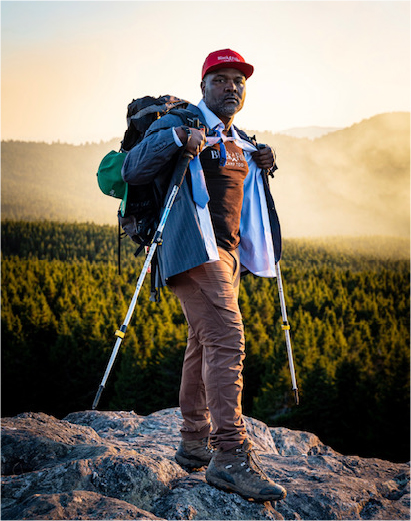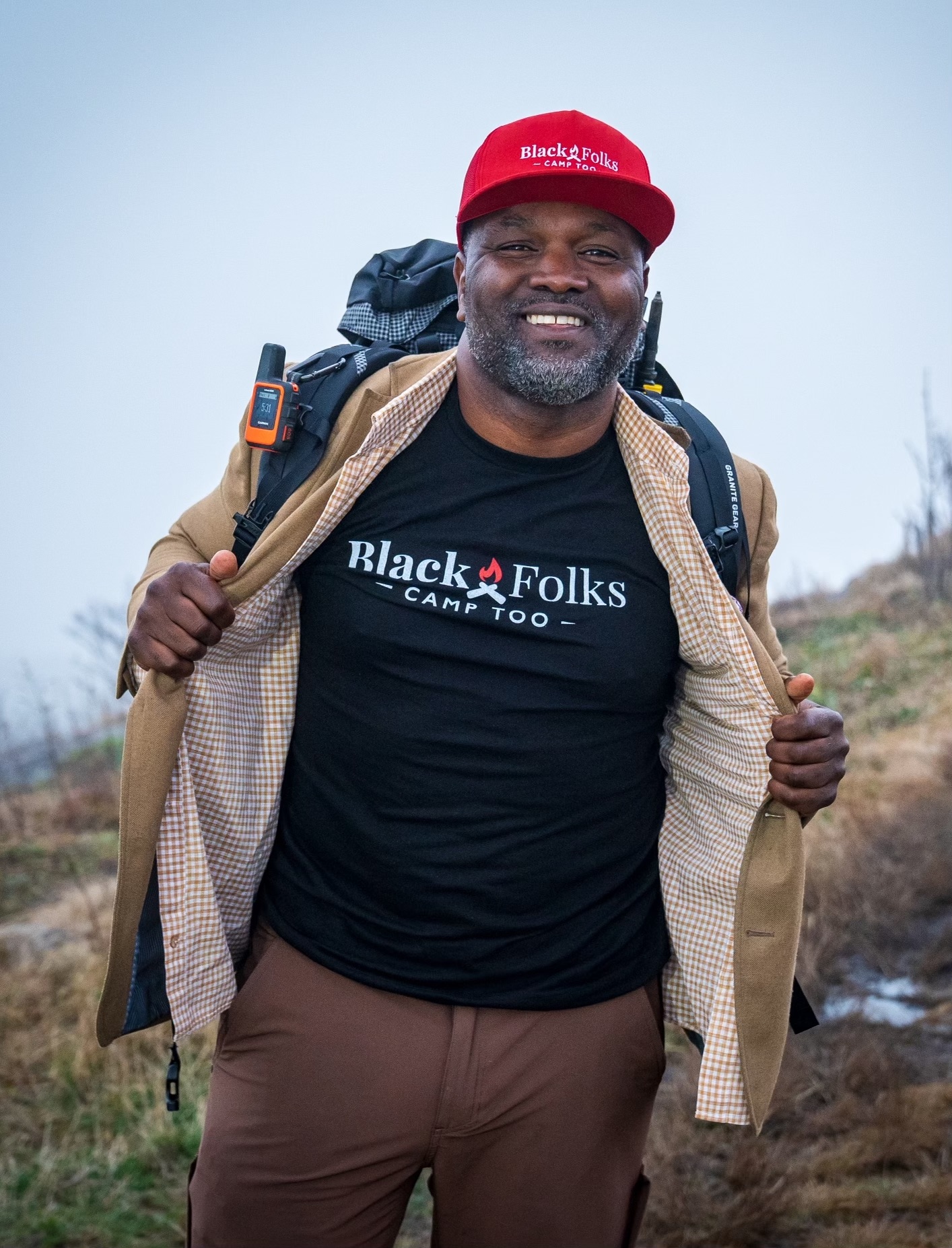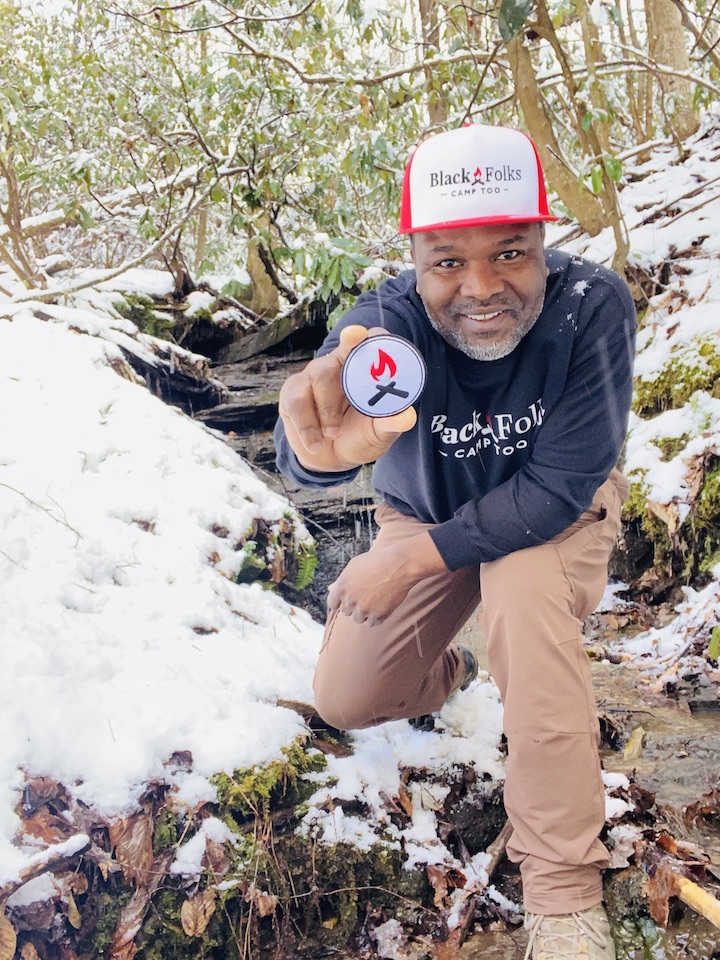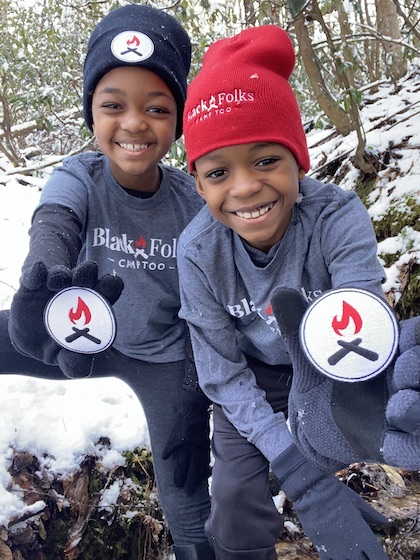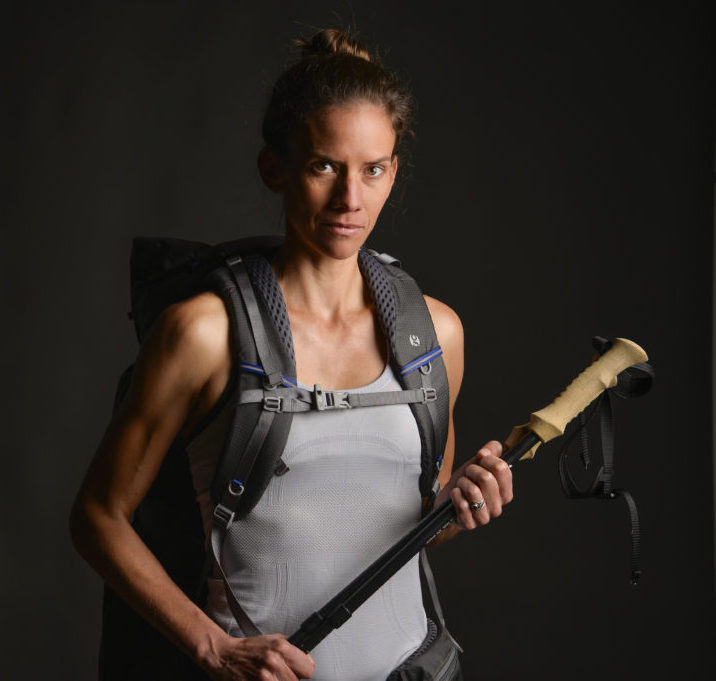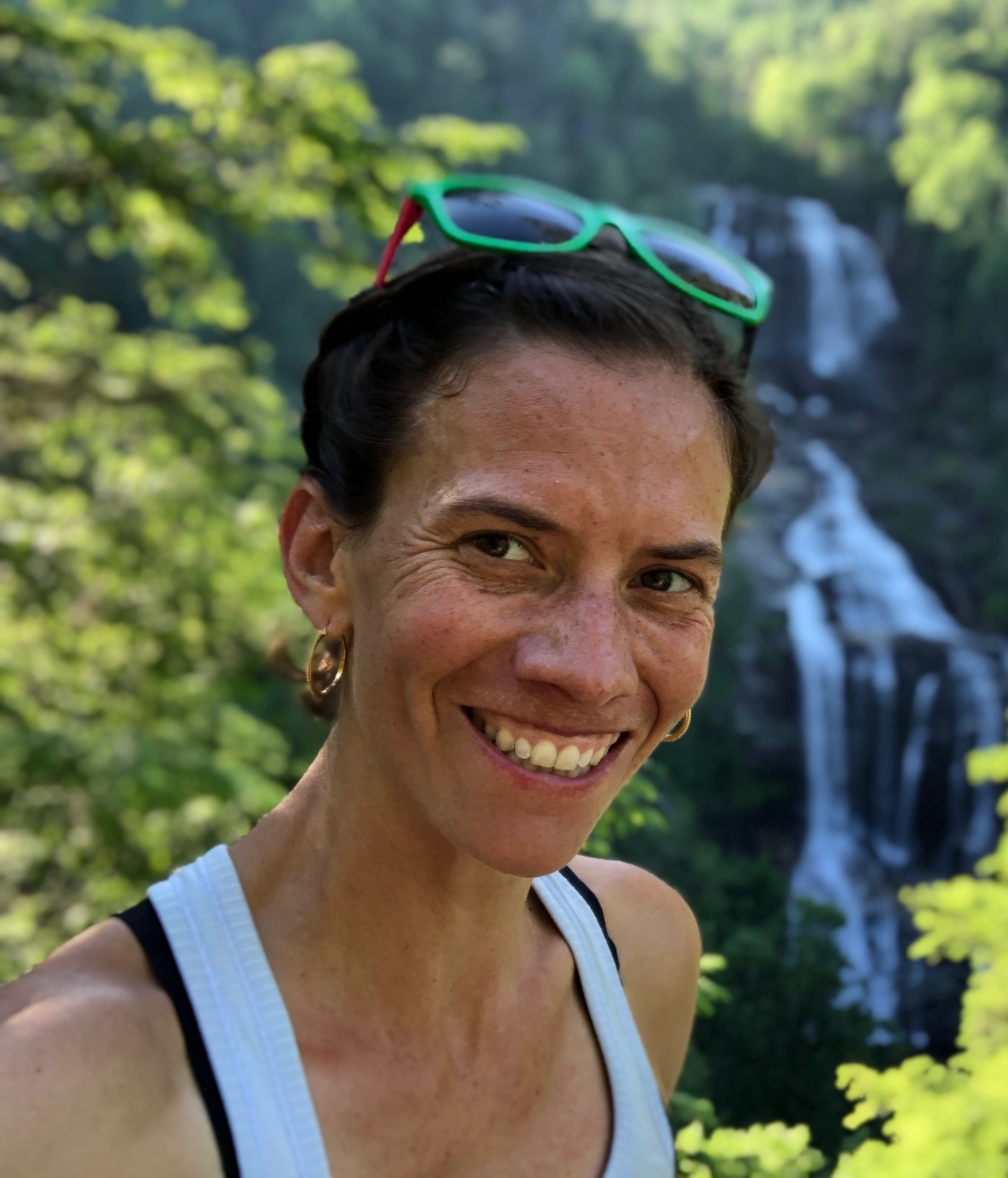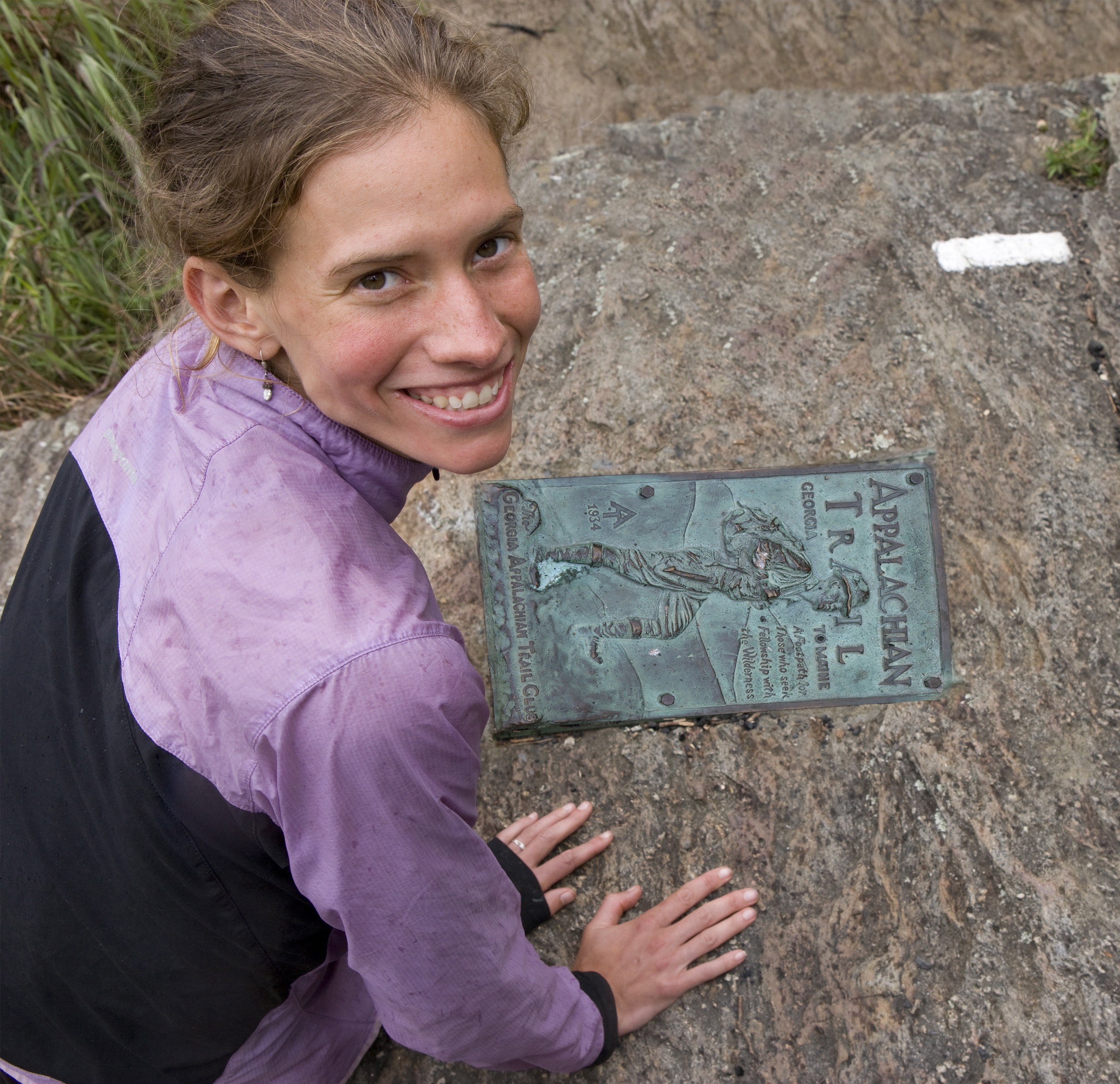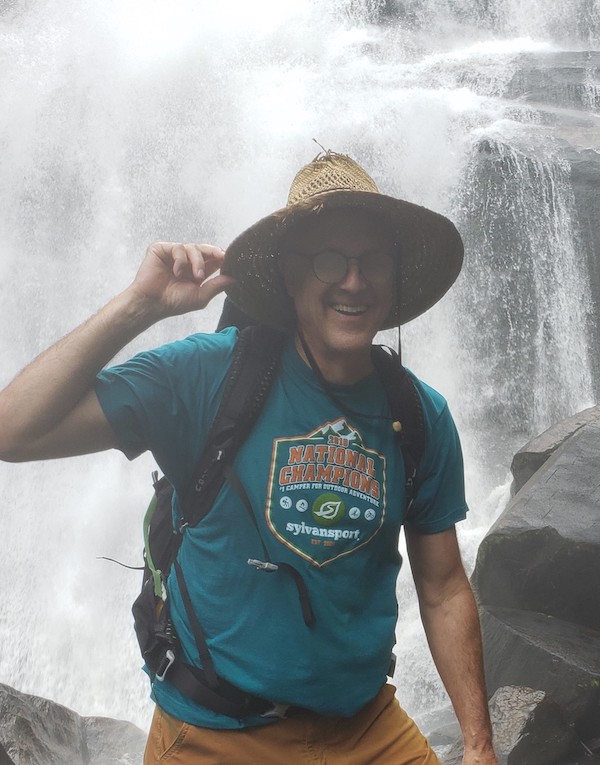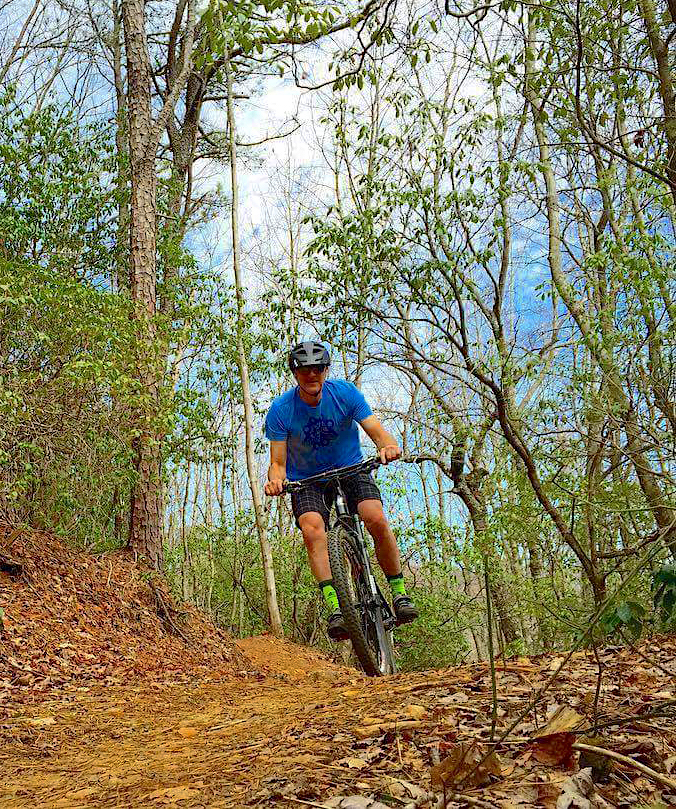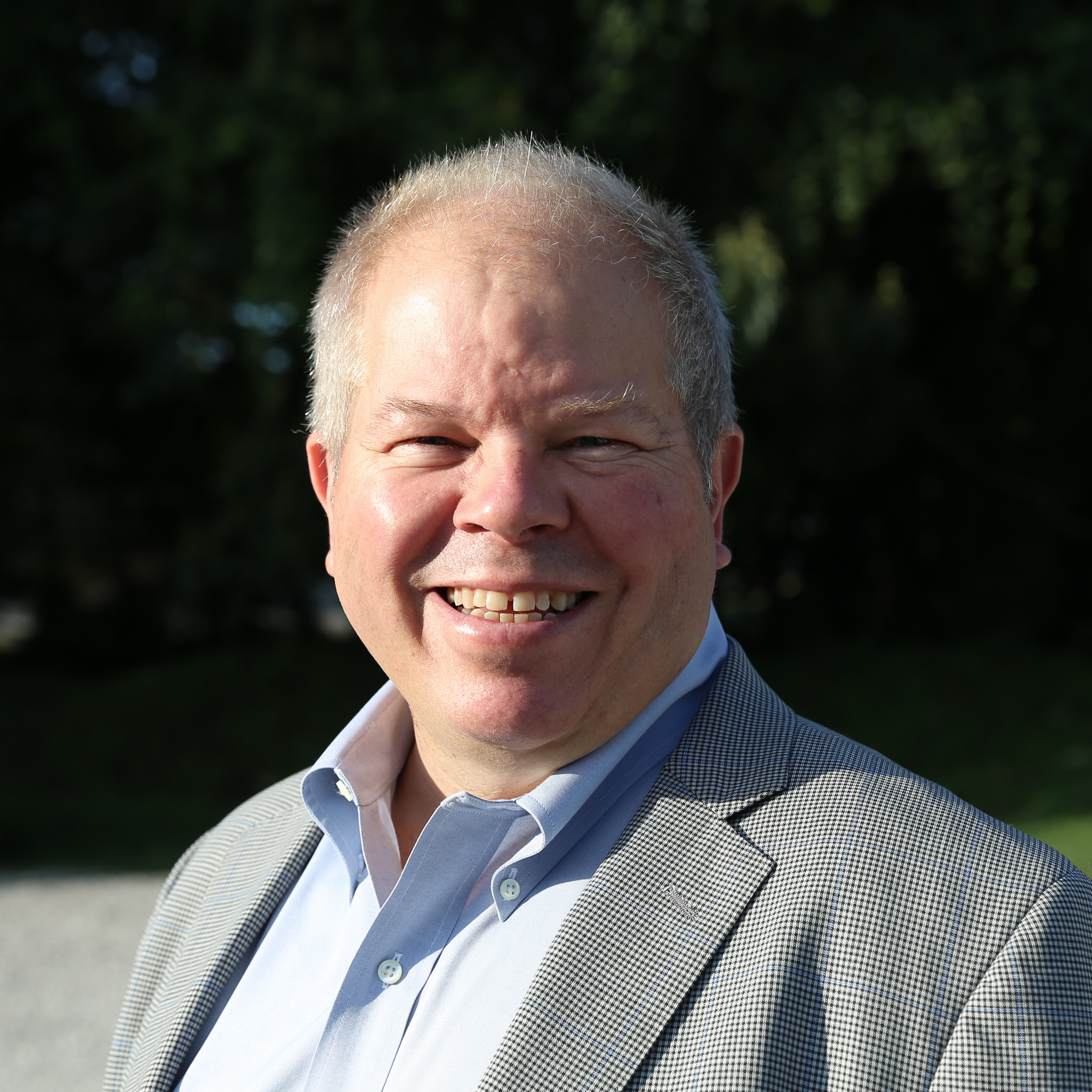
Made By Mountains Story
David Billstrom
When it came time for Kitsbow to relocate, we were seeking accessible housing, improved quality of life, and for the location to be a recruiting tool, rather than an impediment. In that sense, choosing WNC took no convincing at all.
Kitsbow Cycling Apparel makes premium, stylish bike gear designed by real riders. At the helm is David Billstrom, an equal-parts manufacturing theory buff, cycling enthusiast, and community-minded entrepreneur. Aiming to amp up Kitsbow’s domestic production, in 2019 Billstrom relocated the company from Petaluma, California, to Western North Carolina, setting up shop in Old Fort.
David Billstrom is the founder and CEO of
Kitsbow
Kitsbow’s adoption of one-piece-flow production signals a small but significant revival of manufacturing jobs in the old textile town. And that’s just one way Billstrom is encouraging community-building in Old Fort. Just last year, Kitsbow opened the doors to The Old Fort Ride House, a trail-side outpost, cycle shop, and coffeehouse that serves as base camp for visiting riders and locals alike.
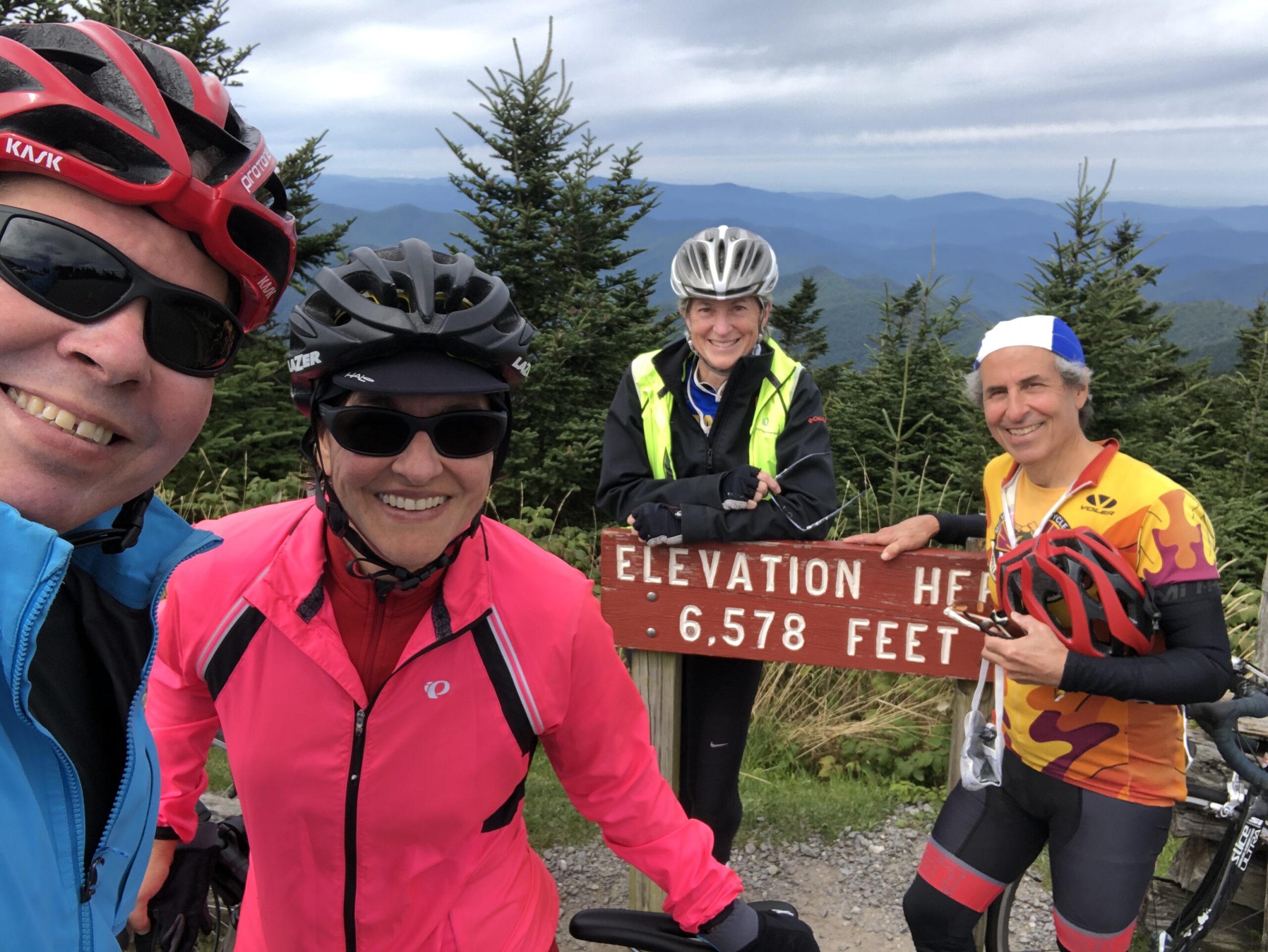
On Choosing WNC
My wife is from here. She grew up on the Blue Ridge Parkway in Southwest Virginia, just over the border near Floyd. I’d spent years learning about Appalachia and about the workforce here. In fact, we had ridden through Old Fort on our bikes on one of our first dates. Where Kitsbow is located today, I’ve ridden down the street on my bike easily 250 times or more.
When it came time for Kitsbow to relocate, we were seeking accessible housing, improved quality of life, and for the location to be a recruiting tool, rather than an impediment. In that sense, choosing WNC took no convincing at all. I presented a plan to the board and the majority investors and they basically all said, “What took you so long?”
On Finding Goldilocks
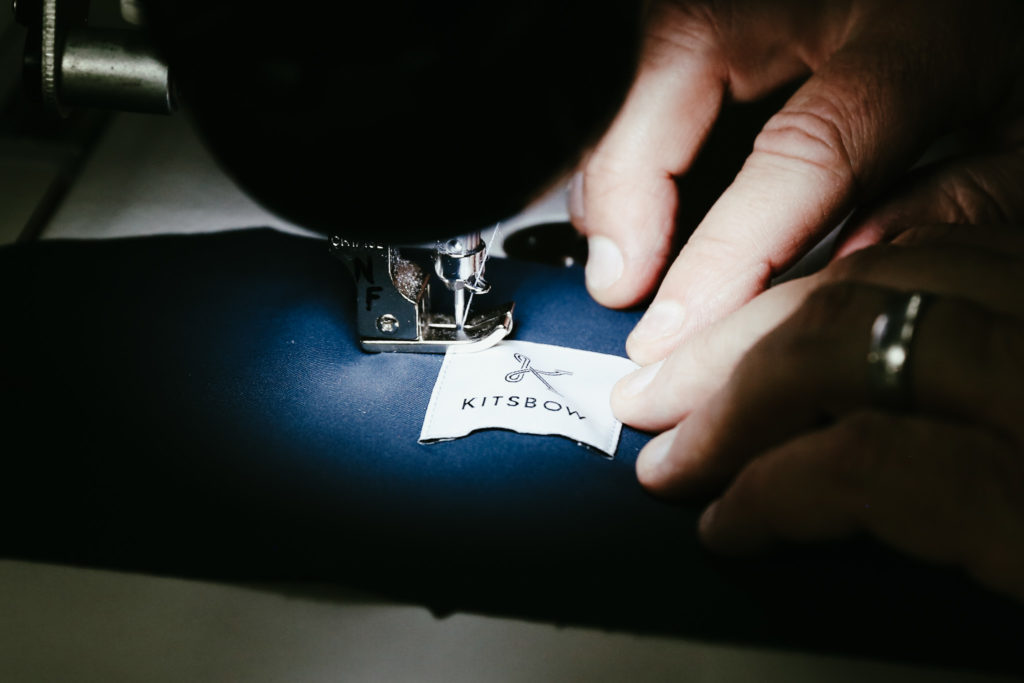
Old Fort is Goldilocks. Perfectly positioned. The best of all worlds. We’re right on the western edge of the state’s 150-year textile and furniture building history. We have thousands and thousands of potential employees in driving distance. We’re a 12-minute commute from Black Mountain. Another five to Swannanoa. We have employees who live 25 minutes away in West Asheville. They’re young, hip, and alive—not old fogies like me! They get to live in one of the most desirable locations in one of the most desirable cities, and we’re a short reverse commute from it.
Even more key is that we are part of the Pisgah National Forest. I can’t emphasize that enough. Bicycle brands like to be based in beautiful locations when they can, but most can’t. They don’t have a workforce at their doorstep that stems from a 150-year production legacy like we do. On top of that, we’ve got access to gravel, singletrack, and road and people ride at lunch, because they can. That’s an incredible thing for the brand.
In the old days, Kitsbow had three people sewing in the back room making about 12 of our 75 styles. The rest was outsource. I saw that and I said, “Tell me some more about these people making stuff in the back room.” Because I knew there had to be a better way.
On Keeping Manufacturing Local
The business model of almost every apparel brand in the US is to make some stuff somewhere else. Some 98 percent of all the clothes sold in America are made outside of America. When you compare that to 35 years ago, when 80 percent of the clothes purchased in America were made in America, it’s been a radical slide. In the old days, Kitsbow had three people sewing in the back room making about 12 of our 75 styles. The rest was outsourced. I saw that and I said, “Tell me some more about these people making stuff in the back room.” Because I knew there had to be a better way.
There are so many implications to manufacturing overseas. You lose control of your cash because of the substantial money you have to put down upfront. There’s also insane environmental waste. When you finally get the clothes in your hands, you need to sell them as fast as freaking possible because you need your cash back. If it doesn’t sell for three weeks, you mark it down. When it gets marked down the third time, it goes to the landfill. Researchers believe between 30 and 40 percent of all the consumer apparel in the world, still in the original packaging, is burned or buried. On top of all that, you’re unable to offer repairs on your goods. And, of course, there are the profound labor issues.
So we made the switch from traditional batch manufacturing to one-piece-flow, a type of lean manufacturing. It means we’re going to make your shirt just before you want to buy it. (Or, right now, we’re making it after you buy it—because we can’t make stuff fast enough.) The business model is well-proven. In fact, it’s how your iPhone is made. It’s flexible, and it’s the way of the future.
On Reminding Yourself You’re New In Town
We remind ourselves to remain humble every single day. Because we ‘ve been in business for nine years, we know that we can always make it better; we have to keep improving things. And we’re doing the same thing with Old Fort. We’ve been promoting Old Fort to our global constituency for a year and a half now. We’ve got the power and confidence of a four-person marketing department with deep experience in social media. We’re promoting it not just as a place, but as a brand.
We don’t want to love Old Fort to death, and we don’t want to make it a place where only rich people can afford to live. We want it to be real.
At the same time, we have to do that with humility. Because it’s like, who the hell are we?
We know we just got here. Our marketing team didn’t grow up here. Every time we put our weight behind an initiative, we have to do it with humility. We have to look at the local leaders. This is their town; we’ve adopted it—but we can’t control it. If we try to control it, it’s going to turn into something like South Lake Tahoe, which was overdeveloped in the ’70s with a lack of appreciation by outsiders for the people who live there. Or Breckenridge, Colorado, which has been loved to death and where a bartender can’t afford to live within the city limits. We don’t want to love Old Fort to death, and we don’t want to make it a place where only rich people can afford to live. We want it to be real..
On Building Community
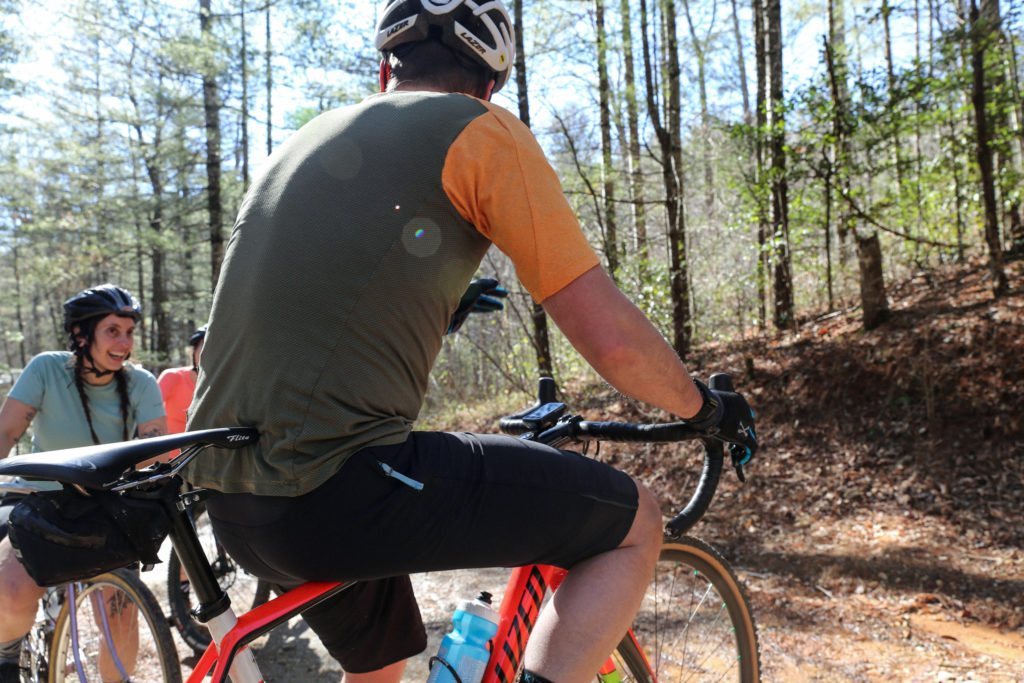
A wonderful synergistic circumstance unfolded in the last year. Kitsbow supported the G5 Trail Collective—a nonprofit formed to build trails in a five-county region that includes McDowell—with a small financial contribution and by providing clothes and food to those who work on the trails. Immediately after we moved to Old Fort, we were invited to participate in community meetings led by People on the Move for Old Fort, a black-led community non-profit. This group, led by Lavita Logan and Stephanie Swepson-Twitty, is working on basic improvements that need to be made here, and in our larger community after more than a hundred years of gerrymandering and systemic racism. That in turn led to a focus on trail development by People on the Move for Old Fort, and involving Kitsbow and other community partners.
Lavita and Stephanie saw the trail development as both an economic opportunity and an opportunity to restore access to the woods that they had years ago and don’t now. So the black community ends up being the largest cash donor to the trails. That donation meant they had a voice in the trail development, which has led to more new beginner trails and not just new steep trails, which is important. If you talk to anyone with any experience running ski resorts, they’ll tell you they need a lot more green and blue than they need double black diamonds. We were starting to make the same mistake here. Now, we’re going to have beginner trails because People on the Move Old Fort was involved in the planning and discussions..
From that, the G5 Trail collective got national visibility because of the Black-led investment in the trails, which, in turn, led to a conversation with McDowell Technical Community College about how the college could help. We realized that the forest service pays people to leave WNC and drive to the coast to get the certification to run a chainsaw and work on trails, because that’s the only place you can get it in North Carolina. Within less than six months, we had a Golden Leaf Grant for $800,000 to create a satellite campus in downtown Old Fort at McDowell Community College to teach trail skills. They’ve already had the first class. It’s incredible how that all wove together, and it goes to show the power of community in this place.
